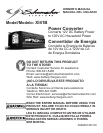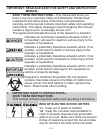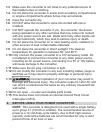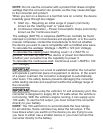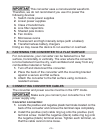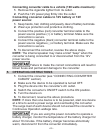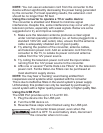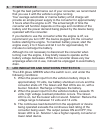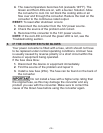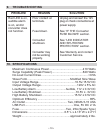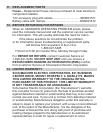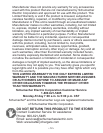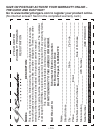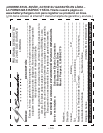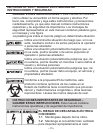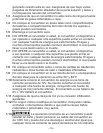
• 3 •
1.3 Make sure the converter is not close to any potential source of
ammable fumes or clothing.
1.4 Do not place the converter in areas such as battery compartments
or engine compartments where fumes may accumulate.
1.5 Keep the converter dry.
1.6 DO NOT allow the converter to come into contact with rain or
moisture.
1.7 DO NOT operate the converter if you, the converter, the device
being operated or any other surfaces that may come into contact
with any power source are wet. Water and many other liquids can
conduct electricity, which may lead to serious injury or death.
1.8 Do not place the converter on or near heating vents, radiators or
other sources of heat or ammable materials.
1.9 Do not place the converter in direct sunlight. The ideal air
temperature for operation is between 50° and 80°F.
1.10 Only connect the power converter to a 12V accessory outlet. Do
not attempt to connect the converter to any other power source,
including an AC power source. Connecting to a 6V or 16V battery
will cause damage to the converter.
1.11 Make sure the AC plug connection is tight.
1.12 Do not modify the converter in any way including cables, plugs or
switches as it may result in property damage or personal injury.
1.13 Incorrect operation of your converter may result in
damage and personal injury. The converter output is 120V AC and
can shock or electrocute the same as any ordinary household AC
wall outlet.
1.14 Do not open – no user serviceable parts inside.
1.15 This device does not include an internal Ground Fault Circuit
Interrupter (GFCI).
2. BEFORE USING YOUR POWER CONVERTER
NOTE: This converter is designed to be used with a single battery,
up to group 31 (130 Ah or smaller). The recommended source of
power is a 12 volt deep-cycle battery, due to their high reserve
capacity. Automotive batteries are recommended for only a short
period of time of an hour or less.



